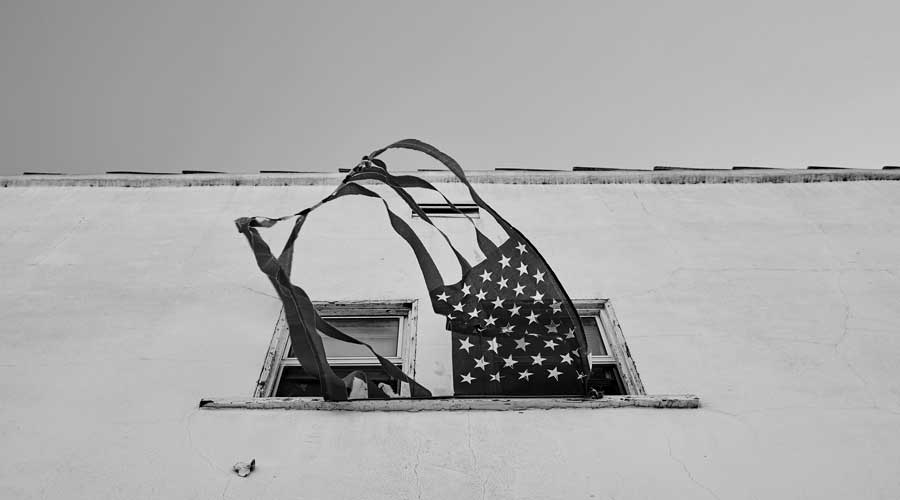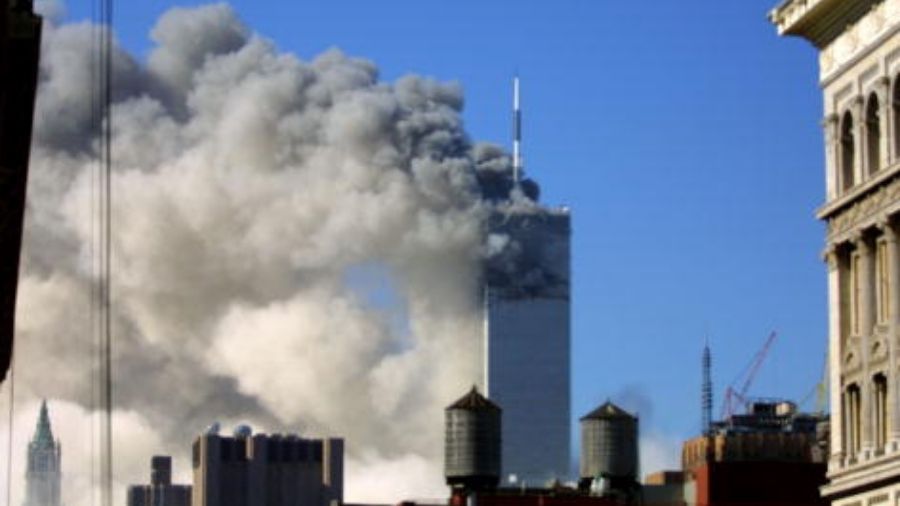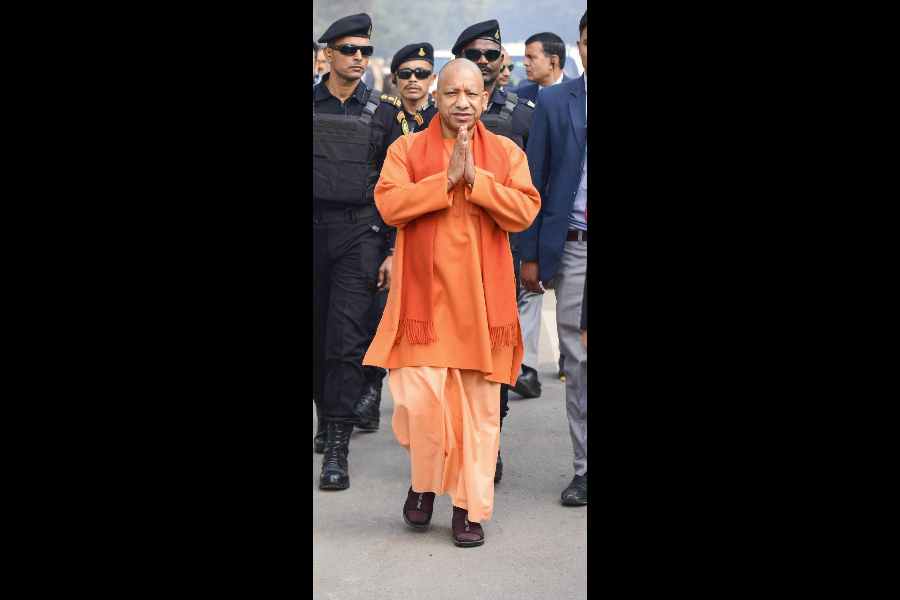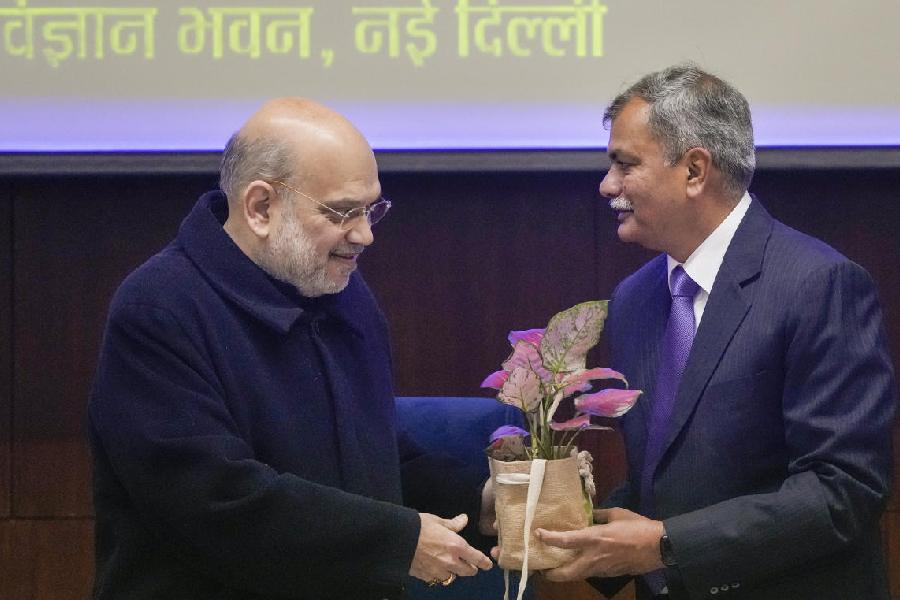I’ll always remember September 11 as something that happened in the evening. At the time I was living in a town in northern India, and I watched the towers fall on a TV someone had dragged into the street. Because I was so far away, I’ll never know the terror people in New York and Washington felt that day, the fear that more attacks were coming, that the epic disaster movies so popular during the bored 1990s had come viciously to life.
But I’m pretty certain that amid all the apocalypticism of that time, most people felt confident in America’s endurance. Yes, al Qaida had pulled off something spectacular. The scale of it made Osama bin Laden’s threat to our country seem far greater than, in retrospect, it really was. Many people felt like a civilisational battle on a par with World War II had commenced.
America’s horror and distress, however, was tinged with dark excitement. Plenty of influential people seemed thrilled to shed their post-Cold War ennui, to feel the nation charged with new purpose. They thought themselves clear-eyed but were in fact devastatingly naïve.
The writer Christopher Hitchens, speaking in 2003, captured the spirit of the time. “Watching the towers fall in New York, with civilians incinerated on the planes and in the buildings,” he said, he felt something he didn’t grasp at first.
“I am only slightly embarrassed to tell you that this was a feeling of exhilaration. ‘Here we are then,’ I was thinking, in a war to the finish between everything I love and everything I hate. Fine. We will win and they will lose.”
We didn’t win. The danger jihadi terrorism posed to our country, while serious, was never truly existential; al Qaida fell apart shortly after its greatest triumph. Yet the damage September 11 did to the United States was more profound than even many pessimists anticipated.
The attacks, and our response to them, catalysed a period of decline that helped turn the United States into the debased, half-crazed fading power we are today. America launched a bad-faith global crusade to instil democracy in the Muslim world and ended up with our own democracy in tatters.
Bin Laden didn’t build the trap that America fell into. We constructed it ourselves. For all the harm September 11 did to America, it did not initially accomplish what bin Laden intended it to. Nelly Lahoud, a senior fellow in New America’s International Security programme, has analysed thousands of pages of bin Laden’s internal communications, seized after Navy SEALs killed him in 2011. As she reported in a recent essay in Foreign Affairs, they were a chronicle of mistaken assumptions, disorganisation and disillusionment.
Bin Laden, wrote Lahoud, “never anticipated that the United States would go to war in response to the assault”. Instead, he expected that a huge anti-war movement would demand the withdrawal of American troops from Muslim-majority countries. He hated America but didn’t understand it at all.
“The 9/11 attack turned out to be a Pyrrhic victory for Al Qaeda. The group shattered in the immediate aftermath of the Taliban regime’s collapse, and most of its top leaders were either killed or captured,” Lahoud wrote.
Those that survived went into hiding and lost the ability to carry out major assaults abroad. America could have credibly declared itself the war’s winner at the end of 2001, sparing countless lives, trillions of dollars and our national honour.
Instead, we remained in Afghanistan and invaded Iraq, where our war sowed chaos that would enable the rise of the ISIS. In time the ISIS, originally a spin-off of al Qaida, came to eclipse the group founded by bin Laden. Its indiscriminate brutality, especially against other Muslims, appalled an earlier generation of jihadists; some of al Qaida’s original leadership ended up like many other aging, disillusioned radicals, disgusted by the excesses of their progeny.
But this doesn’t mean bin Laden failed. Today al Qaida has reconstituted itself — it is now far larger than it was two decades ago. And the United States in September 2021 is in truly terrible shape. Twenty years ago we were credulous and blundering. Now we’re sour, suspicious and lacking in discernible ideals.
“The advance of freedom is the calling of our time; it is the calling of our country,” George W. Bush had said in 2003. But this epoch of aggressive jingoism, ethnic-profiling, escalating paranoia, torture, secret prisons, broken soldiers, dead civilians and dashed imperial dreams have left freedom in retreat both globally and here at home.
Bush’s own political party has radicalised against democracy. Faith in human freedom has curdled into the petulant solipsism of the anti-vaxxers. Since 9/11, more Americans have been killed by far-Right terrorists than by jihadists.
White supremacists have both recruited disillusioned veterans of the war on terror and encouraged their supporters to join the military to gain tactical experience. Of the 569 people that the department of justice has charged in the January 6 insurrection, at least 48 have military ties.
You can’t draw a straight line between the Twin Towers falling and America entering a protracted nervous breakdown; the end of any empire has multiple causes. But in his recent book, Reign of Terror: How the 9/11 Era Destabilized America and Produced Trump, Spencer Ackerman convincingly links the madness that overcame this country after September 11 with the rise of a President who, among other things, campaigned on a promise to end Muslim immigration and bring back torture.
“The painful condition of neither peace nor victory, against an enemy seen as practically subhuman, itself required vengeance,” Ackerman wrote. “Trump offered himself as its instrument. Declaring his presidential candidacy in his golden tower, he asked, ‘When was the last time the US won at anything?’”
Now, as the 20th anniversary of September 11 arrives with the Taliban back in power in Afghanistan, America is face to face with its defeat. In truth, the immediate collapse of the American-supported government probably saved many Afghan lives. If a Taliban victory was all but inevitable, as intelligence analysts apparently assumed, it’s probably better that it happened without a long siege of Kabul.
But the lack of a decent interval between America’s withdrawal and a Taliban takeover, besides being a tragedy for Afghans allied with us, revealed America’s longest war as worse than futile. We didn’t just lose to the Taliban. We left them stronger than we found them.
The sheer waste of it all is staggering. Twenty years ago, American politicians and intellectuals, traumatised by an unprecedented act of mass murder and not-so-secretly eager to see history revved up again, misunderstood what 9/11 represented. We inflated the stature of our enemies to match our need for retribution. We launched hubristic wars to remake the world and let ourselves be remade instead, spending an estimated $8 trillion in the process. We midwifed worse terrorists than those we set out to fight.
We thought we knew what had been lost on September 11. We had no idea.
New York Times News Service
Michelle Goldberg wrote this column for The New York Times. Goldberg is an author and was part of a team that won a Pulitzer Prize for public service in 2018 for reporting on workplace sexual harassment issues












